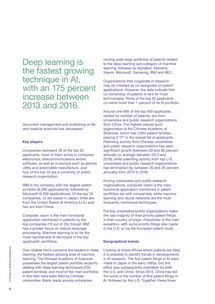科技的发展英文
Title: The Development of Science and Technology
Science and technology have played a crucial role in shaping the world we live in today. From groundbreaking discoveries to innovative inventions, the development of science and technology has significantly impacted every aspect of our lives, including healthcare, communications, transportation, and more. In this article, we will explore the evolution of science and technology and discuss its implications for the future.
The Evolution of Science and Technology
The evolution of science and technology can be traced back to ancient civilizations where early humans used primitive tools and knowledge of natural phenomena to improve their lives. Over time, advancements in fields such as mathematics, physics, and medicine laid the foundation for the modern scientific and technological revolution.

Key Milestones in Science and Technology
The Scientific Revolution:
During the 16th and 17th centuries, leading figures such as Galileo, Copernicus, and Newton revolutionized the way we perceive the natural world. Their contributions to astronomy, physics, and mathematics paved the way for modern scientific inquiry.
The Industrial Revolution:
The 18th and 19th centuries witnessed unprecedented technological advancements, including the steam engine, the telegraph, and the development of mechanized manufacturing processes. These innovations transformed industries and led to significant societal changes.
The Information Age:
The latter half of the 20th century saw the rise of the digital revolution, marked by the advent of computers, the internet, and telecommunications. These technologies have redefined global communication and connectivity.Implications for Society
The rapid development of science and technology has had farreaching implications for society, including:
Improved Quality of Life:
Advances in medicine, biotechnology, and healthcare have led to increased life expectancy and enhanced overall wellbeing.
Economic Growth:
Technological innovations have driven economic growth by creating new industries, generating employment opportunities, and increasing productivity.
Global Connectivity:
Communication technologies have facilitated global interconnectedness, promoting crosscultural exchange and collaboration.
Environmental Impact:
While technology has offered solutions to environmental challenges, it has also contributed to issues such as climate change and resource depletion.Future Trends and Challenges
Looking ahead, several trends and challenges will shape the trajectory of science and technology:
Artificial Intelligence and Automation:
The integration of AI and automation is poised to transform industries, potentially leading to workforce displacement and ethical considerations.
Biotechnological Advancements:
Breakthroughs in biotechnology, genetic engineering, and personalized medicine offer promising solutions for healthcare but also raise ethical and privacy concerns.
Sustainable Technologies:
The development of sustainable energy sources, ecofriendly materials, and conservation technologies will be pivotal in addressing environmental concerns.Recommendations for Responsible Development
As we continue to harness the power of science and technology, it is essential to approach development responsibly. This includes:
Ethical Considerations:
Ethical frameworks must guide the deployment of emerging technologies to ensure that societal values and human rights are upheld.
Environmental Stewardship:
Prioritizing sustainable and ecofriendly technologies will be critical in mitigating the environmental impact of industrial and technological processes.
Inclusive Access:
Efforts should be made to ensure equitable access to technological advancements, bridging the digital divide and promoting global inclusivity.In conclusion, the ongoing development of science and technology holds immense promise and potential for addressing global challenges and improving human livelihood. By approaching these advancements with mindfulness and responsibility, we can strive to create a future where technology serves to enrich the lives of all individuals while safeguarding the planet for generations to come.





